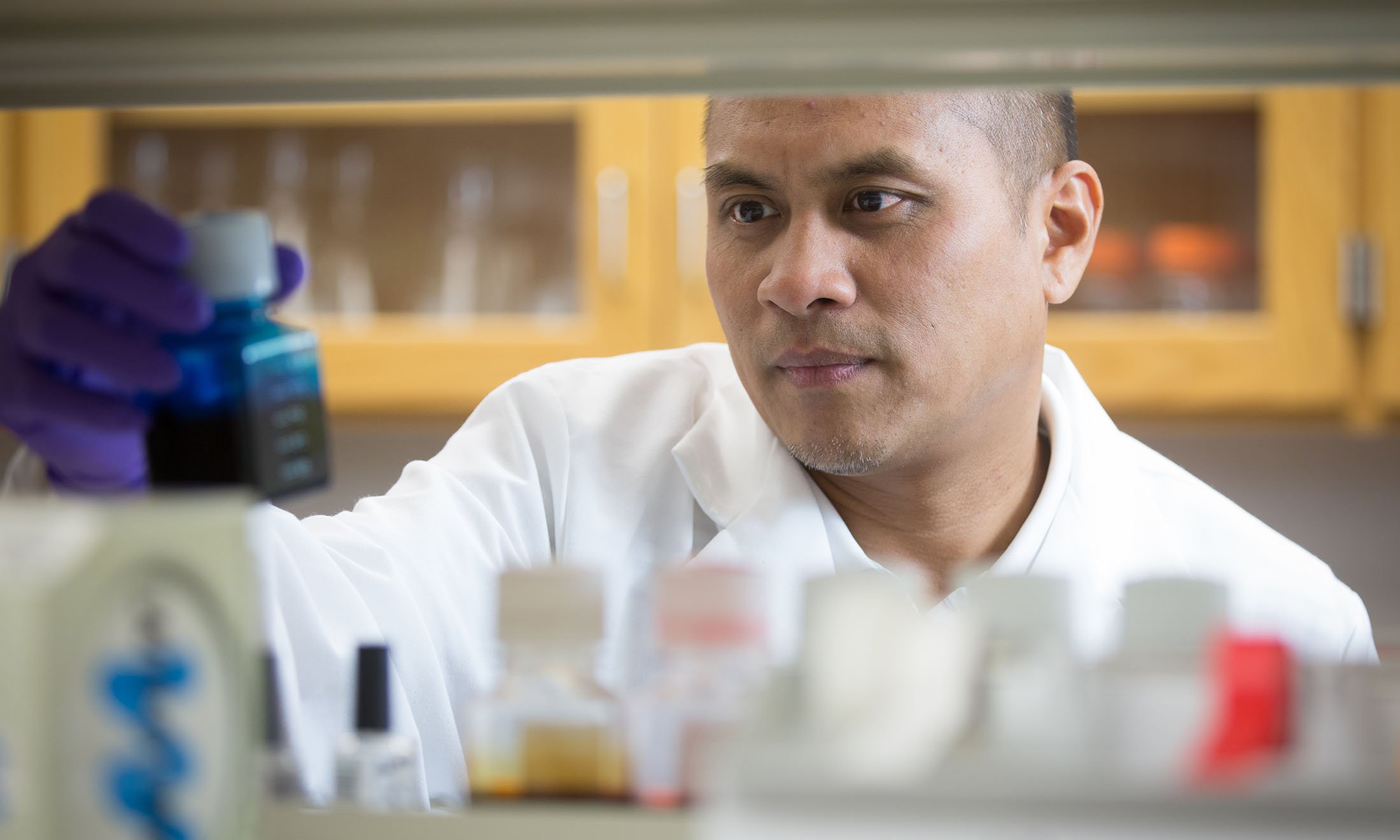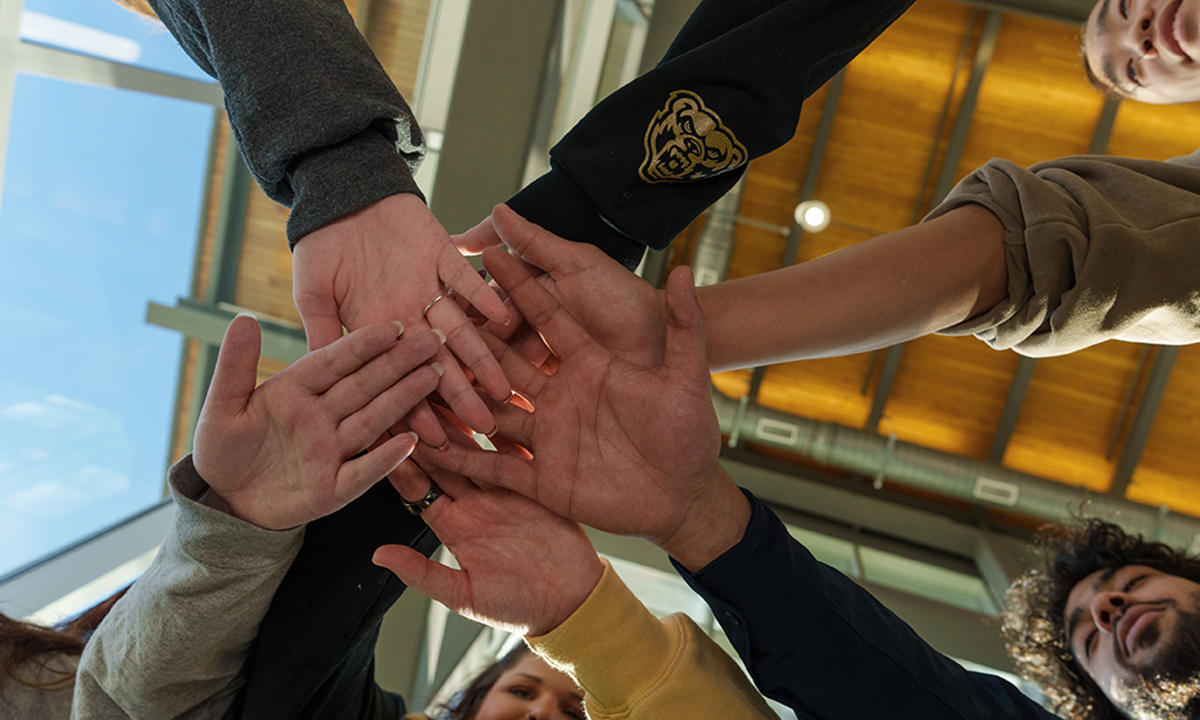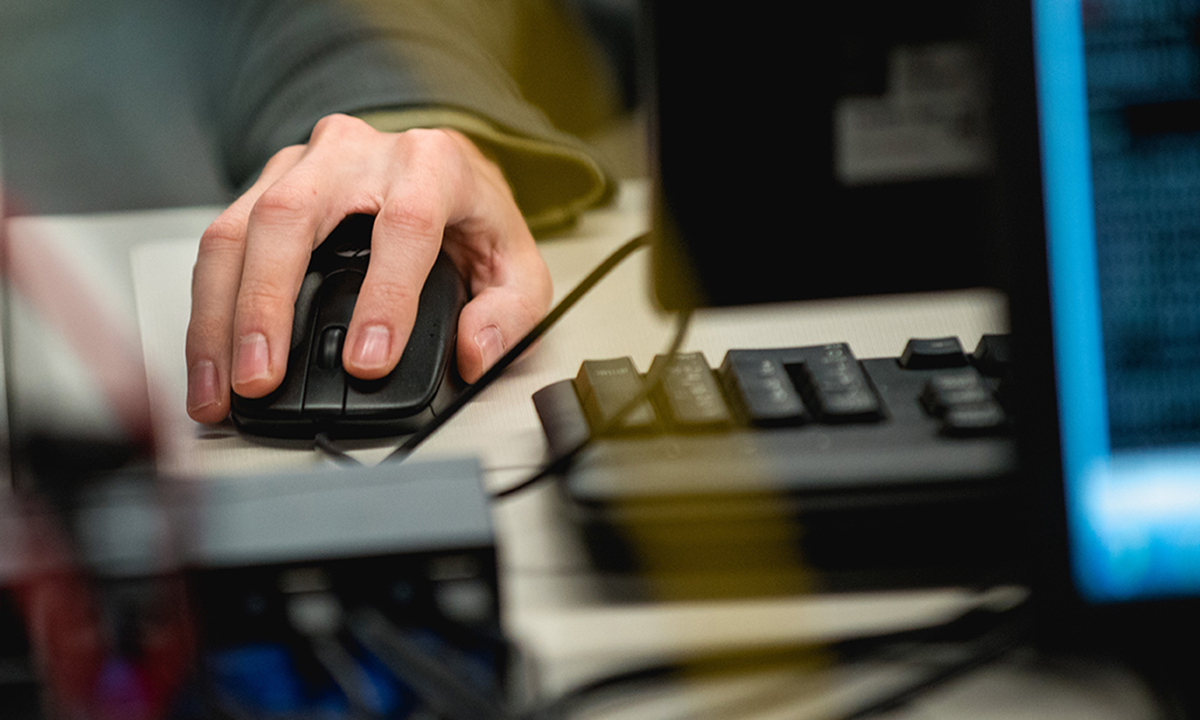Quest for a Cure
Gerard Madlambayan, Ph.D., associate professor of biological sciences, conducts research that could improve acute myeloid leukemia (AML) patient outcomes
When it comes to saving human lives, Oakland University’s researchers work relentlessly to bring forward breakthrough discoveries that can improve people’s chances of survival. Gerard Madlambayan, Ph.D., associate professor of biological sciences, conducts research that has the potential to improve acute myeloid leukemia (AML) patient outcomes.
When treating AML, chemotherapy refractory disease presents the biggest challenge. Dr. Madlambayan’s recent efforts have been focused on the interaction of AML cells with endothelial cells (ECs), which can lead to chemotherapy resistance and disease relapse. Even though chemotherapy helps most AML patients achieve initial remission, 60–80% of them eventually relapse, and Dr. Madlambayan believes that it is because of these supportive cellular interactions. This means that the majority of AML patients may die of relapsed or refractory leukemia.
To live and grow, AML largely depends on its microenvironment. “Studies have shown that interactions with soluble factors, stromal cells and extracellular matrix in the bone marrow is essential in maintaining AML. We now know that ECs serve as sanctuary sites for refractory AML,” Dr. Madlambayan explains. “We have shown that AML cells can activate ECs, which induces the adhesion AML cells to the ECs. The adherent AML cells become quiescent and resistant to chemotherapeutic agents.”
To improve patients' chances of survival, there is an urgent need to understand the molecular mechanisms that are responsible for the protective effects of ECs in AML — the task that became the focus of Dr. Madlambayan’s studies.
The research, funded by a National Cancer Institute R15 grant, took place at OU’s Stem Cell and Cancer Biology Laboratory, located in Dodge Hall. It included ten graduate and undergraduate students, as well as collaborators at the Beaumont Research Institute, Wayne State University and the University of Florida.
In a recent study, Dr. Madlambayan discovered that the soluble factor interleukin (IL)-8 was produced by activated ECs and caused a notable proliferation of AML cells and resistance to chemotherapy agents. Utilizing crystallography and computational modeling, a small molecule inhibitor that blocked the activity of IL-8 was identified. Use of the inhibitor was able to reverse the effects of activated ECs and rendered AML cells sensitive to therapy.
“We identified a pocket within IL-8 responsible for receptor binding, screened for small molecules that fit within this pocket, and blocked IL-8 induced proliferation and chemo-protection of AML cells with a hit compound,” Dr. Madlambayan says.
Results from this study suggest that because IL-8 is an essential component in AML, IL-8 inhibition can be a potential method to augment chemotherapy and to enhance AML patient outcomes.
“Working on the AML project hit close to home because I lost an uncle to AML,” says Regan Miller, an OU graduate student, who worked with Dr. Madlambayan on the AML project. “I kept his picture on my desk to remind me that even on my toughest days nothing will match the pain of losing a family member. The ability to change lives with our research is what attracted me to Dr. Madlambayan’s lab, and it's what keeps me motivated. As researchers, we get to apply our love of science, and challenge ourselves analytically, to ultimately change the world, and I can't think of anything more fulfilling than that.”
This research is only one aspect of Dr. Madlambayan’s cancer-related endeavors, which commenced in graduate school and continued through his postdoctoral training. Dr. Madlambayan is also focused on studying how blood stem cells affect the growth, and response to radiation therapy, in solid tumors, such as lung cancer. Upon joining OU, Dr. Madlambayan founded his Stem Cell and Cancer Biology Laboratory to aid his quest for a cure.
“I plan to continue investigating the role of the tumor microenvironment in such cancers as leukemia and lung cancer. My goal is to use my findings to develop treatment strategies that can be tested in clinical trials and, eventually, used to treat patients. My previous work has already been tested in clinical trials, and I would like to participate in this translational — bench-to-bedside — aspect here at OU,” Dr. Madlambayan adds.
Dr. Madlambayan can be contacted by email [email protected] or phone (248) 370-3585 at any time. He welcomes contributions or support, but he would also be happy to talk about his research efforts.

 December 10, 2020
December 10, 2020
 By Arina Bokas
By Arina Bokas









